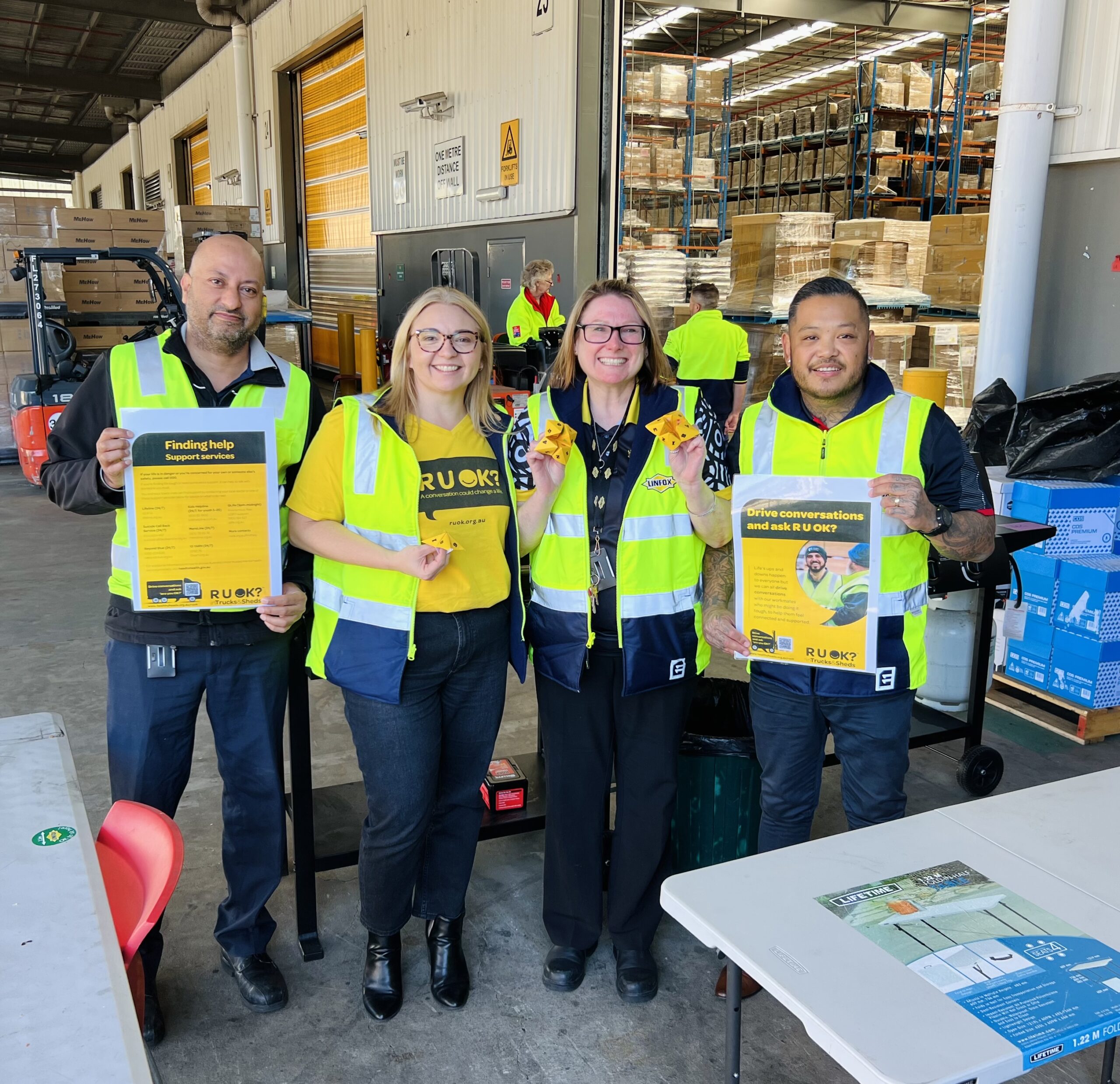
Meet Sarah
R U OK in Trucks & Sheds
Sarah is a Distribution Centre Manager with Linfox and has been at the company for five years. As a manager, Sarah prioritises earning trust and building a supportive workplace culture. She shares some of the practical ways her team check in with one another, and her own experience of how her supportive manager helped her through a challenging time, after the loss of her son.
Many of us spend most of our week with our colleagues, so it’s important that we look out for one another. It can take time for people to feel comfortable doing this and takes genuine effort from leaders to build a safe and supportive environment.
It’s impossible to separate our life’s ups and downs from work. I know this firsthand, because I’ve tried to do it. After losing my 18-year-old son in a tragic accident, I told my colleagues I didn’t want to talk about it upon my return. The past year was exceptionally difficult because he would have been 21, and certain milestones or memories would trigger my emotions. I kept saying I was fine, when I obviously wasn’t fine. Despite people checking in with me, I thought I had to keep composed at work. I’m lucky enough to have an incredibly caring manager who contacted our Employee Assistance Program (EAP) to seek help on how she could support me through my bereavement. She explained to me that she did that because she really wanted to help.
I was always supporting others, but I was neglecting my own mental health. Having my colleague show her genuine effort and care prompted me to get the help I needed.
Our life experiences impact our emotional wellbeing, so knowing your team members puts you in a much better position to recognise the signs someone is struggling and be there to support them.
Recently, one of our team members wasn’t performing the way he usually does, so we knew something was going on. It turned out he had a sick family member. The reason we were able to check in and have that conversation is because we knew him well. And I think that’s the number one thing a leader and colleagues should do – take the time to get to know one another. If you don’t know what somebody does when they’re not at work, how are you going to be a shoulder for them to lean on if they’re struggling with something.
My top three tips are:
- Ask about more than work – whether it’s in a one-on-one meeting or team meeting, asking about people’s weekends and life in general gives them the opportunity to share. I share parts of my life too and it normalises conversations about life outside of work. That way, when times are tough, it doesn’t feel uncomfortable mentioning it.
- Include all team members – Our regional drivers only see us in person once a year, but they’re still a part of our family. We send them care packages, set up virtual meetings and have online chats. The same goes for team members who are unwell or taking time off. One of our team members is quite unwell, so his workmates set up a WhatsApp group. Everyone checks in with one another and shares laughs, so he continues to feel part of the team.
- Create opportunities for connection – Opportunities for connection can be simple. Our site bought two BBQs so we could connect over breakfast cook ups. I try to catch up with team members over a coffee or walk, rather than in my office. The less formal an environment is, the more relaxed people can be with talking and sharing.
R U OK? Trucks & Sheds isn’t about wearing yellow for a day – it’s a reminder of what we should be doing every day. Looking out for one another. Remember, asking that simple question ‘are you OK?’ can’t hurt somebody, but it may end up changing (or saving) their life.




